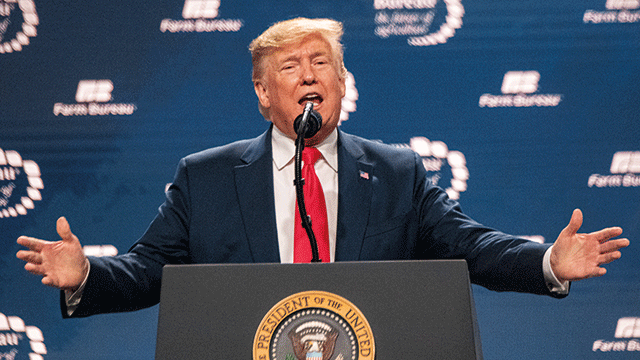Market volatility caused by US president Donald Trump’s tariff strategies is already leading to a slowdown in capital raising and companies pausing large projects, real estate agency bosses have warned as they deliver their firms’ first-quarter results.
“Generally speaking, there is still an uncertainty in the marketplace, which is preventing clients from making longer-term decisions on leases in non-key markets, let’s say,” said Colliers chairman and chief executive Jay Hennick this week on the state of the capital markets.
“We were, I would say, at the beginning of the quarter, excited that things were stabilising. And then, of course, all this tariff stuff started and all of a sudden transactions that were close to closing had financing tied up and a variety of other things just were put on delay. So all of this [is] to say we’re still in a market, in my view, that’s uncertain and unclear. And only a select number of transactions are getting completed.”
From good to not as good
On CBRE’s earnings call, chairman and chief executive Bob Sulentic referred repeatedly to the “choppy” markets the firm now faces, although he said “things didn’t go from good to bad – things went from really good to not as good”.
“We ended the quarter with strong pipelines,” Sulentic added. “And as we’ve gone through the latter part of April, we’ve seen really good activity, but we have seen some implications of what’s going on with the tariffs.”
Those include a slowdown in capital raising, he said, as well as companies pressing pause on big projects including infrastructure deals, where the agency saw business go from “a really enthusiastic picture to one where there’s some choppiness out there”.
JLL chief executive Christian Ulbrich was asked on the firm’s earnings call whether rolling tariff extensions “could just become the new sort of normal operating environment”.
“One of the key points which people would agree on is that the current environment has increased the uncertainty and has decreased the visibility,” he replied. “And if your scenario will be the case going forward that we will have an ongoing extension of these 90 days and things going back and forth, then we all have to get used to operate in that environment, hopefully equally successfully than we were operating in a clearer environment with better visibility.”
Other agency bosses have been more optimistic. At Cushman & Wakefield, chief executive Michelle MacKay said tariff uncertainty has not yet “materially impacted our sector”.
“We’re continuing to see improving trends in office and strong demand for high-quality products,” MacKay added. “And in the industrial sector, we also continue to see absorption of space is performing in line with our expectations for the year. I would say that when you consider our business in today’s market conditions and you think about client behaviour… our data is showing that their decision making is really falling into two buckets.
“Group one [is] our clients that are going forward with the decisions on the existing timeline they have, and this is, I would say, about 90% to 95% of what we’ve seen out of our clients through mid-April. These are clients that are confident. They’re making choices. They’re moving through the noise in the market.
“And then there’s group two – and I would say this is 5% or less of what we’re seeing today – our clients who are opting to delay their decisions today, but will make that decision later in 2025. What we’re not witnessing is a freeze in decision making.”
Rewriting the script
C-suite leaders are confident their businesses are well-placed to navigate a tough market. CBRE’s chief financial officer, Emma Giamartino, said the agency is “significantly more resilient than we were even a few years ago, definitely more resilient than we were coming out of the GFC”.
“Today, if you were to put our business through the same type of a recession that we saw in the GFC, our declines would be materially lower,” she said. “[In the] GFC our declines were 85% peak to trough. Now it would be less than half of that.”
But there remain questions over whether there could still be surprises ahead as Trump and his team decide policy ad-hoc.
“Tariffs are obviously the subject du jour,” said Colliers’ Hennick. “I would have said up until yesterday (Sunday), tariffs were essentially on hard products. And yesterday, for the first time, our president has decided to put tariffs on movies, which is actually in service.”
“Colliers’ operations are decentralised,” Hennick added. “They’re country-specific. We deliver the services that we deliver within country. So as an organisation, we’re not impacted directly. But indirectly, tariffs could drive up the cost of construction in that component of our business, and that could, therefore, slow down new developments. [In] engineering, [it’s] sort of the same thing, depending upon supply chains and other things.”
Image © rawpixel.com / U.S. Department of Agriculture (Source)
Send feedback to Tim Burke
Follow Estates Gazette











